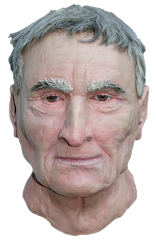 In 1974, the National Party led South African government passed the ‘Afrikaans Medium Decree’ which mandated that all schools be taught in both English and Afrikaans. Afrikaans had to be used for mathematics, arithmetic, and social studies from the 7th grade. English would be the medium of instruction for general science and practical subjects (homecraft, needlework, woodwork, metalwork, art, agricultural science). Indigenous languages would be used for religion instruction, music, and physical culture.
In 1974, the National Party led South African government passed the ‘Afrikaans Medium Decree’ which mandated that all schools be taught in both English and Afrikaans. Afrikaans had to be used for mathematics, arithmetic, and social studies from the 7th grade. English would be the medium of instruction for general science and practical subjects (homecraft, needlework, woodwork, metalwork, art, agricultural science). Indigenous languages would be used for religion instruction, music, and physical culture.A 1972 poll had found that 98% of young Sowetans did not want to be taught in Afrikaans. The association of Afrikaans with apartheid prompted black South Africans to prefer English. The 1974 decree was intended to forcibly reverse the decline of Afrikaans among black Africans.
The decree was resented deeply by blacks as Afrikaans was widely viewed, in the words of Desmond Tutu, "the language of the oppressor". The resentment grew until and children went on strike, refusing to go to school. The students formed an Action Committee (later known as the Soweto Students’ Representative Council) that organized a mass rally for June 16 to make themselves heard.
 On the morning of June 16, 1976, thousands of black students walked from their schools to Orlando Stadium to protest against having to learn through Afrikaans in school. The protests were intended to be peaceful. The students began the march only to find out that police had barricaded the road along their intended route. After scuffles between marchers and police, the police opened fire into the crowd. Colonel Kleingeld, drew his handgun and fired the first shot, causing panic and chaos. Students started screaming and running and more gunshots were fired, killing 23 people, including children.
On the morning of June 16, 1976, thousands of black students walked from their schools to Orlando Stadium to protest against having to learn through Afrikaans in school. The protests were intended to be peaceful. The students began the march only to find out that police had barricaded the road along their intended route. After scuffles between marchers and police, the police opened fire into the crowd. Colonel Kleingeld, drew his handgun and fired the first shot, causing panic and chaos. Students started screaming and running and more gunshots were fired, killing 23 people, including children.This incident triggered the uprising, which lasted for days and resulted in the deaths of between 200 and 700 people, with over a thousand injured. Photographs from the uprising were broadcast around the world and the event is seen as helping fuel the anti-apartheid movement of the 1980s which eventually brought down the racist apartheid regime.
 Today as we recall the memory and sacrifice of these young people marking Youth Day, we remember the many in the world that continue to live under oppressive policies and governments. G.B Shaw once said, “We learn from history that we learn nothing from history.” Scenes such as depicted in the photograph showing the dying Hector Pieterson cradled in a fellow student’s arms continue to this date as is indicated by another similar photograph taken in Palestine.
Today as we recall the memory and sacrifice of these young people marking Youth Day, we remember the many in the world that continue to live under oppressive policies and governments. G.B Shaw once said, “We learn from history that we learn nothing from history.” Scenes such as depicted in the photograph showing the dying Hector Pieterson cradled in a fellow student’s arms continue to this date as is indicated by another similar photograph taken in Palestine.Let us allow ourselves to be inflamed by the spirit of those students and may their courage, their awareness of injustice, their desire to do away with oppressive structures continue to fuel our own passion to fight for justice.











No comments:
Post a Comment